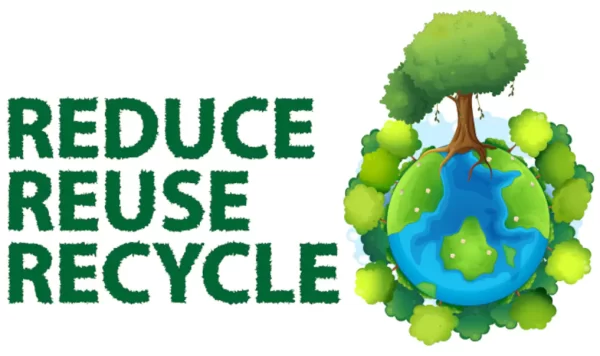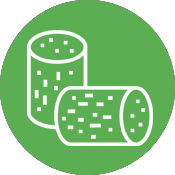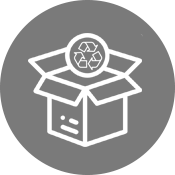Sustainability in the cellar
Sustainability in the vineyard as well as in the cellar by implementing appropriate actions and practices to reduce the environmental impact of the entire supply chain and raise the awareness of the final consumer.
Among the most fundamental measures is the use of electricity from renewable sources and it is of utmost importance the use of recyclable materials from production to packaging.

BE SMART AND RECYCLE
Today, more than ever, we must not only attend to the quality of the final product but everything that contains the wine: glass, cork, capsule and paper/case.

GLASS
It is one of the many containers that is 100% recyclable, almost endlessly. This means that, in addition to being the most suitable material for preserving the characteristics of wine over time, by making good use of it, we can use it with confidence while safeguarding the environment.
CORK
It is of vegetable origin based material and is totally recyclable. Its multiple uses are numerous: it can be used to make new caps but also for building purposes; in fact, it can be used to make insulating and sound-absorbing layers that improve the energy performance of buildings. Otherwise, it can be disposed of with organic waste and turned into compost.


CAPSULE / BAG-IN-BOX
We are talking about materials that are infinitely recyclable, albeit in different ways. We have two types of CAPSULES: PVC and aluminium. In the first case, plastic will be collected, while in the second, aluminium will be collected, as well as the bag inside the bag in box. On the other hand, the WIRED HOODS, being a ferrous material will be allocated to the collection of steel.
PACKAGING
Paper and cardboard can be recycled many times over as the cellulose can be processed and reused as a secondary material for the production of new paper or cardboard. Approximately 80 per cent is transformed into new paper material resulting in large savings in energy, water and timber. Quantity-wise, 17 trees are saved for every tonne of recycled paper.

